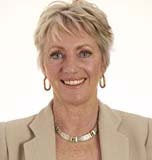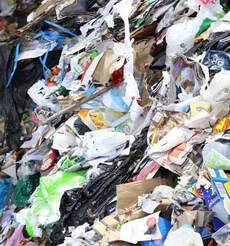

IN MARCH this year the State Government set up an inquiry into the crisis in Victoria’s recycling and waste management system. More than 200 submissions have been received and an interim report is due on August 29 with the final report due at the end of November. We await this date with great anticipation.
Last month I was lucky enough to take a field trip to the western and northern parts of Melbourne visiting three MRFs or material recovery facilities. These are specialised plants that receive, separate and prepare recyclable materials for marketing to end-user manufacturers – typically glass, metal, aluminium and plastics and others stuff.
In the three facilities I visited, I saw the future of recycling – the future is here. It is more than encouraging. The first company was a newly opened facility recovering plastics and various polymers. Operated by robots, and innovative technology, sorting, cleaning and grating into chips for reuse. There was no limit to what sort of plastics or polymers this facility could recover.
The next two facilities were something totally different. One was a 60-hectare construction and demolition industry resource recovery park. I am using the word park because it was breathtakingly beautiful, given its function. Just a quick sketch on what they do – they recover materials such as aggregate, industrial sand, asphalt, concrete, brick, rock, glass, and more.
The other facility I visited was a glass and asphalt recycling plant that is capable of separating contaminants such as metal, paper and plastics from recyclable crushed glass. This company makes use of dirty or contaminated glass containers and shards collected in kerbside recycling. It is capable of recycling up to 150,000 tonnes a year, which equates to four million bottles per day.
So where is the end market for these recycled materials? Look no further than a VicRoads-approved road-base and asphalt.
Crushed glass (called glass fines) for example – sourced from kerbside recycling collections – has been turned into sand to build Victorian roads, including the recent Tullamarine Freeway widening from Bulla Road to Power Street.
All good news stories.
All these facilities have one thing in common: their founders are passionate about the circular economy – to reduce the reliance on extractive resources and instead re-use our existing resources.
As long as our communities continue to recycle and keep the pressure on the people building our infrastructure to do it sustainably, such companies have important roles to play in building greener roads and other infrastructure, ensuring we have a thriving circular economy. We want more of them, especially right here in Bass Coast.
Whilst on the good news, here in Gippsland there is a proposal to build a $35 million battery recycling plant in Latrobe Valley. The facility would recycle about 50,000 tons of discarded batteries into lead alloy, fertilisers and chipped plastic.
At the moment in Australia we send the majority of discarded batteries – something like 150,000 tons – overseas and about 50,000 tons are processed in Wagga Wagga NSW. Things are changing.
From July 1 the Victorian Government is banning e-waste from going to landfill. E-waste covers a range of items in our daily working and home lives, including televisions, computers, mobile phones, kitchen appliances and white goods – in fact anything with a plug, cord or a battery. Why? Because all these items have material which can be recovered and reused.
More good news – the Morrison Government has made an election promise of $200 million to increase recycling and reduce waste and has appointed Australia’s first assistant minister for waste reduction, Trevor Evans.
Finally, today the State Government announced that single use plastic shopping bags will be banned across Victoria from November 1 this year.
Despite some setbacks in the recycling sector, it isn’t a story of just doom and gloom.
Cr Rothfield is Bass Coast Shire’s representative on the Gippsland Waste Resource Recovery Group. This is an edited transcript of an address she made at Wednesday’s council meeting.